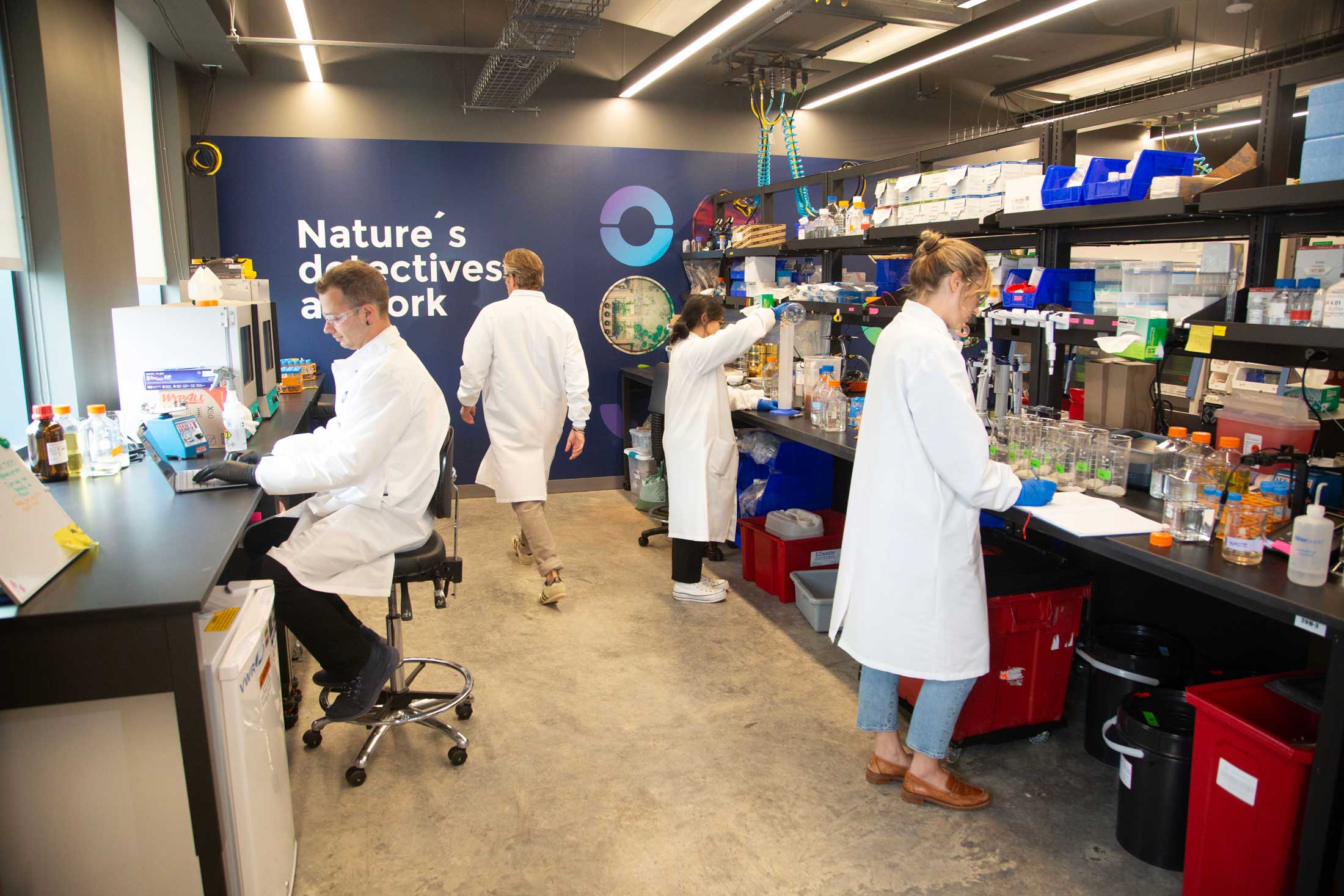2024 Nobel Winners Transform Protein Science with Design and AI Predictions
David Baker, Demis Hassabis, and John Jumper are pioneers who’ve reshaped protein science, promising profound impacts across medicine, technology, and the environment
Oct 9, 2024
[Niklas Elmehed/Nobel Prize Outreach]
The 2024 Nobel Prize in Chemistry has been awarded for groundbreaking discoveries in the field of proteins, the molecular machines that power life’s chemical processes. The Royal Swedish Academy of Sciences split this year’s prize, recognizing two teams for their pioneering contributions: one in computational protein design and the other in protein structure prediction.
David Baker, a biochemist at the University of Washington, receives one-half of the prize “for computational protein design.” His work has pushed the boundaries of molecular biology by constructing entirely new kinds of proteins, offering vast possibilities for medicine and technology.
Demis Hassabis and John Jumper share the other half from Google DeepMind in London, UK. They are recognized “for protein structure prediction,” an achievement made possible through their development of AlphaFold2, an AI model that has revolutionized the prediction of proteins' intricate structures—a challenge that had eluded scientists for half a century.
The Intricate World of Proteins
Proteins are nature’s multitaskers, driving the chemical reactions essential for life. They also serve as hormones, antibodies, signal carriers, and the building blocks of tissues. The 2024 Nobel laureates have cracked two monumental problems related to proteins: building entirely new ones from scratch and accurately predicting their complex shapes.
"One of the discoveries being recognized this year concerns the construction of spectacular proteins. The other fulfills a 50-year-old dream: predicting protein structures from their amino acid sequences. Both of these discoveries open up vast possibilities," said Heiner Linke, Chair of the Nobel Committee for Chemistry.
David Baker: Crafting New Proteins from Scratch
Proteins are made up of 20 amino acids, often referred to as life’s building blocks. In 2003, David Baker achieved a remarkable milestone by designing a novel protein unlike any naturally occurring one. This success has paved the way for his research team to create a series of new proteins with various practical applications. These include pharmaceutical proteins, advanced vaccines, nanomaterials, and even microscopic sensors.
AlphaFold2: Predicting the Future of Protein Research
The second breakthrough celebrated this year centers on predicting the complex shapes of proteins. Proteins fold into intricate three-dimensional structures, and this shape is critical to their function. Since the 1970s, scientists have struggled to predict these structures based solely on amino acid sequences. That changed in 2020 when Demis Hassabis and John Jumper introduced AlphaFold2, an AI model capable of predicting the shape of nearly all known proteins.
AlphaFold2’s impact has been profound. With its predictions, researchers can now better understand antibiotic resistance, envision enzymes capable of breaking down plastics, and explore countless other scientific and medical questions. Since its release, AlphaFold2 has been accessed by over two million users across 190 countries, transforming fields as diverse as molecular biology and environmental science.
A New Era for Protein Research
Proteins are fundamental to life, and these discoveries are reshaping our understanding of them. The ability to design new proteins and predict their structures opens a world of possibilities, from medical breakthroughs to tackling global environmental challenges. As we unlock more secrets of these molecular machines, the potential benefits for humankind are immense.


















